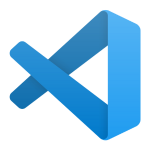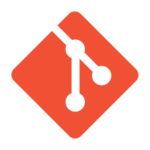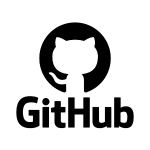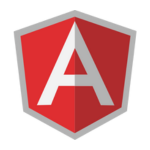Web development jobs: Industry trends, and expert tips to land your dream career in the thriving world of web development.
More...
Welcome to our latest blog post, where we dive into the exciting world of web development jobs! As the digital landscape continues to expand and evolve, the demand for skilled web developers has soared. In this comprehensive post, we'll explore the various roles and opportunities available to those who choose to pursue a career in web development.
From front-end developers who create visually engaging user interfaces to back-end developers who work behind the scenes to ensure everything runs smoothly, we'll provide an in-depth look at the diverse skillsets required for these highly sought-after positions. Along the way, we'll also discuss how you can kickstart your career, regardless of your current experience level, and the job prospects that await you in this rapidly growing field.
So, whether you're a seasoned professional looking for a change or a newcomer eager to break into the world of web development, join us as we guide you through the ins and outs of this dynamic industry. Read on to discover the endless possibilities that await you in web development jobs!
The Web Development Job Landscape: Exploring Various Roles
1. Front-End Developer
A front-end developer is a key player in shaping the web experience for users, focusing on crafting visually appealing and highly functional websites.
They are responsible for designing the interface, layout, and overall appearance of a site or application, ensuring seamless navigation and optimal user experience.
Front-end developers must have a keen eye for detail, with a deep understanding of design principles, typography, and color theory, as well as mastery of HTML, CSS, and mostly JavaScript. These coding languages form the backbone of front-end development, enabling developers to create responsive, interactive, and accessible web pages.
To excel in this role, developers often need to collaborate with designers, back-end developers, and other stakeholders to translate design mockups and wireframes into fully functional and aesthetically pleasing web solutions.
Additionally, front-end developers should stay up-to-date with emerging web technologies, frameworks, and libraries such as React, Angular, or Vue.js, which can significantly enhance their productivity and development capabilities. The ever-evolving nature of web development requires front-end developers to continuously learn and adapt, making it an exciting and dynamic career choice for those who thrive on creative challenges.
Ultimately, a skilled front-end developer plays a crucial role in delivering immersive, engaging, and memorable web experiences for users across the digital landscape.
2. Back-End Developer
The back-end developer is the hidden powerhouse behind every successful web application, diligently working to ensure seamless functionality and user experience.
Their primary responsibility is to design, develop, and maintain the server-side logic of web applications, handling the database, server configuration, and communication between the front-end and back-end.
Mastery of server-side programming languages like Python, Ruby, PHP, and Node.js is crucial for a back-end developer, as these languages enable them to write efficient, scalable, and reliable server-side code.
Moreover, back-end developers must be proficient in database technologies, such as SQL or NoSQL databases, to effectively store, manage, and retrieve data for web applications. They also need to have a strong understanding of APIs and RESTful web services to enable seamless communication between the front-end and back-end components.
Additionally, back-end developers should be well-versed in server deployment and management, along with implementing security measures to protect web applications from potential threats.
In a nutshell, a back-end developer is an indispensable member of any web development team, and their expertise in server-side programming and database management lays the foundation for powerful and dynamic web applications.
3. Full-Stack Developer
A Full-Stack Developer is a versatile professional who possesses expertise in both front-end and back-end web development. These developers are highly sought-after in the job market due to their ability to seamlessly manage projects from start to finish, eliminating the need for separate specialists.
Full-Stack Developers have a comprehensive understanding of various programming languages, such as JavaScript, Python, and Ruby, as well as server-side technologies like Node.js and database management systems such as MySQL.
One of the key strengths of a Full-Stack Developer is their ability to adapt and learn new technologies, making them an indispensable asset for organizations looking to stay ahead of the curve. They also possess strong problem-solving skills and an innate ability to switch between various aspects of a project, from designing visually engaging user interfaces to optimizing the performance of the back-end infrastructure.
Consequently, Full-Stack Developers often excel in collaborative work environments, where their skill set can be utilized to streamline project development and improve overall efficiency.
In addition to their technical prowess, Full-Stack Developers must possess effective communication skills, as they frequently liaise with clients, project managers, and fellow developers to ensure that project requirements are met and potential issues are addressed. In summary, a career as a Full-Stack Developer provides a unique opportunity to explore the vast world of web development and make a significant impact on the digital landscape.
4. UI/UX Designer
The role of a UI/UX Designer in the web development job landscape is crucial in ensuring that websites and applications are both visually appealing and user-friendly. UI, or User Interface, focuses on the design aspects, including colors, fonts, and layout, while UX, or User Experience, concentrates on the overall interaction between the user and the product.
As a UI/UX Designer, you'll work closely with developers and product managers to create engaging and intuitive interfaces that not only look great but also function seamlessly.
A strong understanding of design principles, typography, and color theory is essential for success in this role. Mastery of design software, such as Adobe Creative Suite, Sketch, and Figma, will enable you to create stunning visuals that effectively communicate the intended message.
Additionally, having a solid grasp of user-centered design methodologies and wireframing tools, like Balsamiq or InVision, will help you create well-structured and user-friendly interfaces. By honing these skills and staying current with the latest design trends, you'll be well-equipped to excel as a UI/UX Designer in the competitive web development job market.
Top Trending Programming Languages for Web Developers
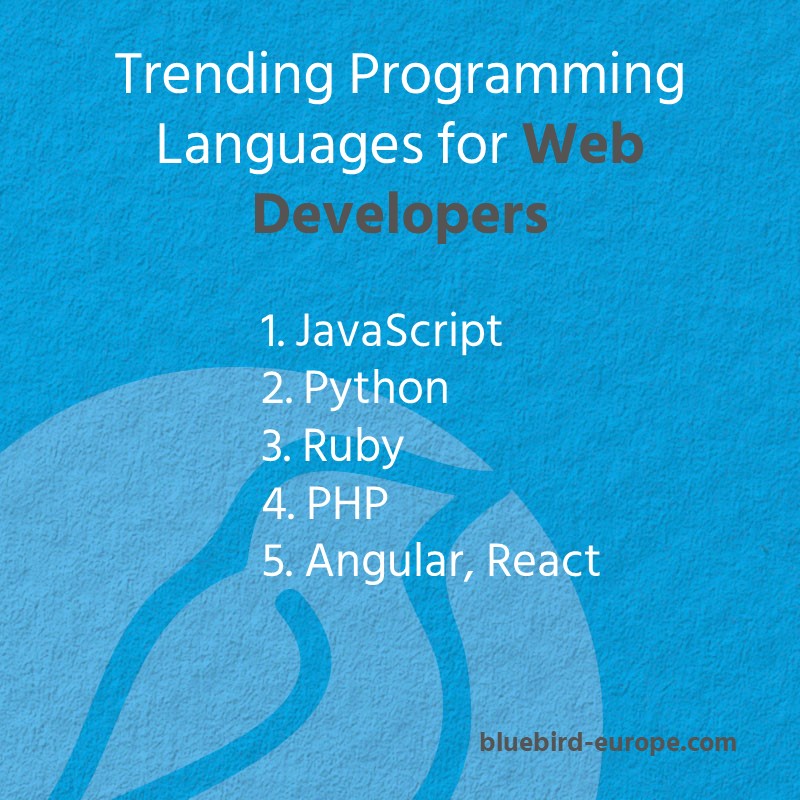
1. JavaScript: The Front-End Powerhouse
JavaScript has undoubtedly become the backbone of modern web development, asserting its dominance as the primary front-end programming language. Initially created to add interactivity to websites, JavaScript has since evolved into a powerful and versatile language, enabling developers to create highly dynamic and engaging user experiences.
In this chapter, we delve into the reasons behind JavaScript's widespread popularity and its relevance in today's web development job market.
One of the key factors contributing to JavaScript's success is its support across all major web browsers. This widespread adoption ensures that web developers can confidently utilize JavaScript to create interactive elements that work seamlessly across different platforms.
Additionally, JavaScript's event-driven and asynchronous nature allows for the smooth handling of user interactions, making it the go-to language for front-end development.
Another noteworthy aspect of JavaScript is its ability to work in tandem with HTML and CSS, forming the essential trio for modern web development. This compatibility facilitates the creation of responsive web designs, further solidifying JavaScript's position as a front-end powerhouse.
Moreover, the continuous development of JavaScript frameworks and libraries, such as React, Angular, and Vue.js, has significantly enhanced the language's capabilities and streamlined the development process.
2. Python: The Versatile And Accessible Choice
In today's competitive web development job market, mastering Python can significantly increase your chances of landing your dream role. As a powerful, versatile, and user-friendly programming language, Python has become a popular choice for both beginners and experienced developers.
The language's simplicity, readability, and ease of learning make it a go-to option for those aspiring to enter the web development domain.
Python's extensive collection of libraries and frameworks like Django, Flask, and Pyramid provide developers with robust tools to create efficient and scalable web applications. Additionally, Python's ability to seamlessly integrate with other programming languages such as JavaScript, HTML, and CSS makes it a valuable asset in any web developer's toolkit.
Python's compatibility with various platforms, its strong community support, and the availability of numerous online resources have contributed to its growing popularity in the web development job market. By honing your Python skills, you can distinguish yourself from the competition and open up a world of opportunities in diverse industries that rely on web technologies. Embracing Python in your web development journey is a surefire way to stay ahead of the curve and build a rewarding career in the ever-evolving digital landscape.
3. Ruby: Streamlining Web Development
In the world of web development, Ruby is a programming language that offers a user-friendly approach to crafting web applications. With a clean syntax and an emphasis on simplicity, Ruby has become a favorite among developers seeking to create dynamic, database-driven websites with ease.
For those pursuing a web development job, understanding the advantages of Ruby can be an essential asset.
One of the key reasons Ruby is so popular in the web development job market is the Ruby on Rails (RoR) framework. This full-stack framework allows developers to create web applications quickly and efficiently, making it an attractive choice for startups and small businesses. With RoR, developers can streamline their workflow, rapidly prototyping new ideas and bringing them to life.
In addition, the Ruby community is known for its welcoming and supportive atmosphere, making it an excellent choice for newcomers to web development. With a wealth of resources, including extensive documentation, tutorials, and forums, those looking to break into a web development job will find a nurturing environment in which to hone their skills.
In conclusion, mastering Ruby and Ruby on Rails can prove to be a valuable investment for those seeking a web development job. With its clean syntax, powerful framework, and supportive community, Ruby offers developers a unique and efficient approach to web application development.
4. PHP: The Evergreen Server-Side Language
PHP is a popular choice among developers seeking to create dynamic web applications. As an open-source server-side scripting language, PHP has been powering web applications for over two decades, with a strong presence in content management systems like WordPress, Drupal, and Joomla.
Its ease of use, compatibility with various web servers, and wide range of database support have made PHP a strong contender in the web development landscape.
Despite facing competition from newer languages and frameworks, PHP maintains its relevance thanks to ongoing improvements and updates. Its latest version, PHP 8, brings numerous performance enhancements and features, such as the Just-In-Time (JIT) compiler, which greatly accelerates script execution times. As a result, web developers who are proficient in PHP continue to be in high demand, and securing a web development job with this skill set can be a smart career move.
For newcomers to the web development job market, PHP can be an attractive starting point, as it is relatively easy to learn, with ample resources and tutorials available online. Furthermore, experienced developers can expand their skill set by learning PHP frameworks like Laravel, Symfony, or CodeIgniter, which provide a solid foundation for building complex web applications more efficiently. In conclusion, despite the emergence of alternative languages, PHP's longevity and versatility make it a valuable asset for anyone seeking a web development job.
5. Angular and React: Enhancing JavaScript with Type Safety
In recent years, TypeScript has been making waves in the web development job market, offering developers a fresh approach to JavaScript programming. With the addition of type safety and improved tooling, TypeScript is becoming a must-have skill for developers seeking to excel in their web development careers. As a superset of JavaScript, TypeScript inherits all of JavaScript's capabilities while introducing static types, which can lead to cleaner and more maintainable code.
TypeScript's rising popularity in the web development job market can be attributed to its seamless integration with popular JavaScript frameworks like Angular and React, making it a powerful choice for both front-end and back-end development. Additionally, TypeScript's robust type checking can help catch potential errors during development, saving time and reducing the likelihood of bugs making it to production.
For those looking to enhance their web development job prospects, learning TypeScript can be a valuable investment. Not only will this skill set you apart from other candidates, but it will also demonstrate your commitment to staying updated with the latest trends and best practices in web development. To get started with TypeScript, developers can explore its official documentation, take online courses, or join coding communities to collaborate with others and enhance their learning experience.
Essential Web Development Tools for a Competitive Edge
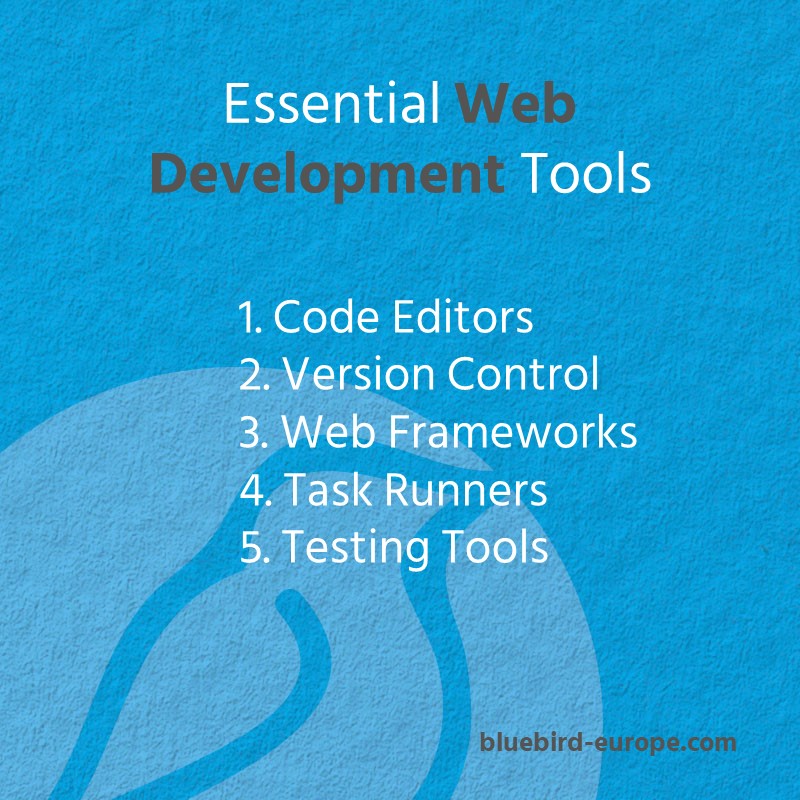
1. Code Editors: Atom, Sublime Text, and Visual Studio Code
In any web development job, a reliable and powerful code editor is crucial for success. Code editors are designed to facilitate smooth coding experiences, providing syntax highlighting, autocompletion, and other essential features that significantly boost productivity. Choosing the right code editor can be a game-changer for web developers, as it helps to streamline the coding process, making it more efficient and enjoyable.
Atom, Sublime Text, and Visual Studio Code are three popular code editors that have made their mark in the web development industry. Each offers a unique set of features, extensions, and integrations that cater to the varied needs and preferences of web developers. By exploring these code editors and finding the one that best aligns with your web development job requirements, you can enhance your coding prowess, improve your workflow, and ultimately, stand out in the competitive web development market.
2. Version Control: Git and GitHub
As a web developer, managing your code and collaborating with team members becomes increasingly essential for project success. This is where version control systems, such as Git, and platforms like GitHub, come into play. These tools allow web developers to track changes in their code, revert to previous versions, and efficiently collaborate with other developers.
In today's competitive web development job market, having a solid understanding of version control systems is vital. They not only improve your productivity but also showcase your ability to work in a team-oriented environment. By mastering Git and familiarizing yourself with platforms like GitHub, you'll not only enhance your skillset but also increase your marketability in the web development job landscape.
3. Web Frameworks: Angular, React, and Vue.js
Web Frameworks like Angular, React, and Vue.js, delve into the three most popular and powerful web frameworks that can skyrocket your web development job prospects. As a web developer, staying current with these cutting-edge frameworks is crucial for staying competitive in the job market.
Angular, backed by Google, is a robust, TypeScript-based framework that simplifies building scalable, single-page applications.
React, developed by Facebook, is a widely-used library for building user interfaces with a component-based approach, offering unrivaled performance and flexibility.
Lastly, Vue.js is an adaptable and lightweight framework that can be easily integrated into existing projects or used for creating complex applications from scratch.
By mastering these frameworks, you will demonstrate your dedication to staying ahead of the curve, setting yourself apart from other web development job seekers and increasing your chances of landing your dream role.
4. Task Runners: Grunt, Gulp, and Webpack
This chapter focuses on task runners, which are indispensable tools that help automate repetitive tasks, optimize workflows, and streamline the development process. By using task runners like Grunt, Gulp, and Webpack, developers can ensure that they work efficiently, reduce the risk of errors, and ultimately deliver a better-quality end product.
Grunt, Gulp, and Webpack each bring their unique strengths to the table, catering to different preferences and web development tasks. Grunt is a well-established task runner with a vast ecosystem of plugins, making it easy to find and integrate the tools you need. Gulp, on the other hand, is famous for its code-over-configuration approach, allowing developers to work with familiar JavaScript syntax. Lastly, Webpack stands out as a powerful bundler that manages not just JavaScript, but also assets like CSS, images, and fonts.
Understanding and utilizing these task runners can significantly boost your productivity and value in the web development job market, giving you an edge over the competition.
5. Testing Tools: Jest, Mocha, and Selenium
The web development job market is increasingly competitive, and having the right testing tools in your toolkit can make a significant difference in standing out from the crowd. In this chapter, we delve into the essential testing tools that can help web developers deliver high-quality, reliable websites and applications. As we discuss the merits of popular tools like Jest, Mocha, and Selenium, you'll gain a deeper understanding of their unique features and how they can enhance your development process.
Jest, for instance, is an excellent choice for testing JavaScript applications, while Mocha provides flexibility with its modular architecture. Selenium, on the other hand, is a powerful tool for automating web browsers, making it ideal for end-to-end testing. By mastering these testing tools, you can not only excel in your web development job but also showcase your commitment to quality and continuous improvement to potential employers.
Boost Your Web Development Career With Certifications

1. FreeCodeCamp: A Comprehensive Web Development Curriculum
Having a strong foundation in essential skills can make all the difference. FreeCodeCamp is an incredible resource for both beginners and experienced developers looking to strengthen their skills and stand out from the crowd.
This online learning platform offers a comprehensive and free curriculum in web development, covering HTML, CSS, JavaScript, and various front-end and back-end libraries and frameworks. With its project-based learning approach, FreeCodeCamp allows learners to not only gain theoretical knowledge but also hands-on experience in building real-world projects.
By completing FreeCodeCamp's curriculum, web developers can showcase their expertise to potential employers, increasing their chances of landing their dream web development job. Additionally, FreeCodeCamp's active community provides invaluable networking opportunities, mentorship, and support throughout the learning journey.
2. Microsoft Certified: Azure Developer Associate
Microsoft Certified Azure Developer Associate certification is a valuable addition to your web development job profile. As a globally recognized and respected certification, obtaining this credential demonstrates your expertise in designing, building, and maintaining cloud solutions on the Microsoft Azure platform. In an increasingly cloud-driven world, having a strong foundation in cloud technologies can significantly boost your chances of landing a rewarding web development job.
The Azure Developer Associate certification not only enhances your credibility as a web developer but also expands your knowledge of cutting-edge cloud solutions. By pursuing this certification, you'll learn how to integrate Azure services into your web development projects, optimize performance, and ensure security. Ultimately, this chapter showcases how obtaining the Microsoft Certified: Azure Developer Associate certification can serve as a stepping stone to further your career in the competitive web development job market.
4. Google Developer Certifications: Associate Android Developer & Mobile Web Specialist
Google Developer Certifications can significantly enhance your web development job prospects. These certifications are designed to validate your expertise in specific web development domains, such as Android development and mobile web development. The Associate Android Developer certification, for instance, demonstrates your ability to design and build Android applications, while the Mobile Web Specialist certification showcases your proficiency in creating responsive and high-performing web applications optimized for mobile devices.
Obtaining a Google Developer Certification not only bolsters your resume but also gives you a competitive edge in the web development job market. As a recognized industry standard, these certifications are highly valued by employers, making you a more attractive candidate for a wide range of job opportunities. By investing in these certifications, you'll be one step closer to landing your dream web development job and thriving in this fast-paced, ever-evolving industry.
5. Adobe Certified Expert (ACE): Web Specialist
As an industry-leading certification, the ACE Web Specialist program is designed to validate a candidate's expertise in various Adobe products and services, equipping them with skills that are invaluable in the current job market. This chapter will guide you through the specifics of the certification, including its focus on Adobe Creative Cloud applications such as Photoshop, Illustrator, and Adobe XD.
By obtaining this certification, web development professionals can showcase their proficiency in creating visually stunning and responsive web designs, making them stand out to potential employers. With a detailed overview of the certification process, the chapter offers helpful tips for navigating the exam and highlights the importance of hands-on experience. Ultimately, the ACE Web Specialist certification can be a game-changer for those seeking a competitive edge in the web development job market.
6. W3Schools Web Developer Certificates: HTML, CSS, JavaScript, and PHP
These certifications cover essential web technologies such as HTML, CSS, JavaScript, and PHP, proving your competency in each area. By obtaining these certifications, you not only validate your skills but also demonstrate your commitment to staying current in the rapidly evolving web development industry.
Pursuing a W3Schools Web Developer Certificate is a smart investment for both beginners looking to break into the web development job market and experienced developers seeking to expand their skillset. The courses and exams are designed to be accessible and affordable, allowing you to quickly gain valuable credentials. Ultimately, obtaining these certifications can give you a competitive edge in the web development job market, helping you stand out to potential employers and clients.
Summary
As technology evolves and businesses increasingly rely on their online presence, web developers play a crucial role in shaping the digital landscape. The post highlights the importance of staying up-to-date with the latest industry trends and programming languages, such as JavaScript, Python, and Ruby, to ensure success and adaptability in the field.
Moreover, the post sheds light on the various web development roles available, including front-end, back-end, and full-stack developers, along with the significance of understanding the distinctions between these positions. By emphasizing the importance of networking, learning from experts, and participating in coding boot camps, I encourage you aspiring web developers to hone your skills and prepare for a rewarding career in this dynamic industry.
Our blog post serves as a comprehensive guide for anyone interested in pursuing a career in web development, outlining the essential skills, roles, and resources necessary to thrive in this exciting and ever-changing field.
If your company is looking for IT professionals and you are interested in IT recruitment or IT staff augmentation, please contact us and we will be happy to help you find the right person for the job.
To be the first to know about our latest blog posts, follow us on LinkedIn and Facebook!


